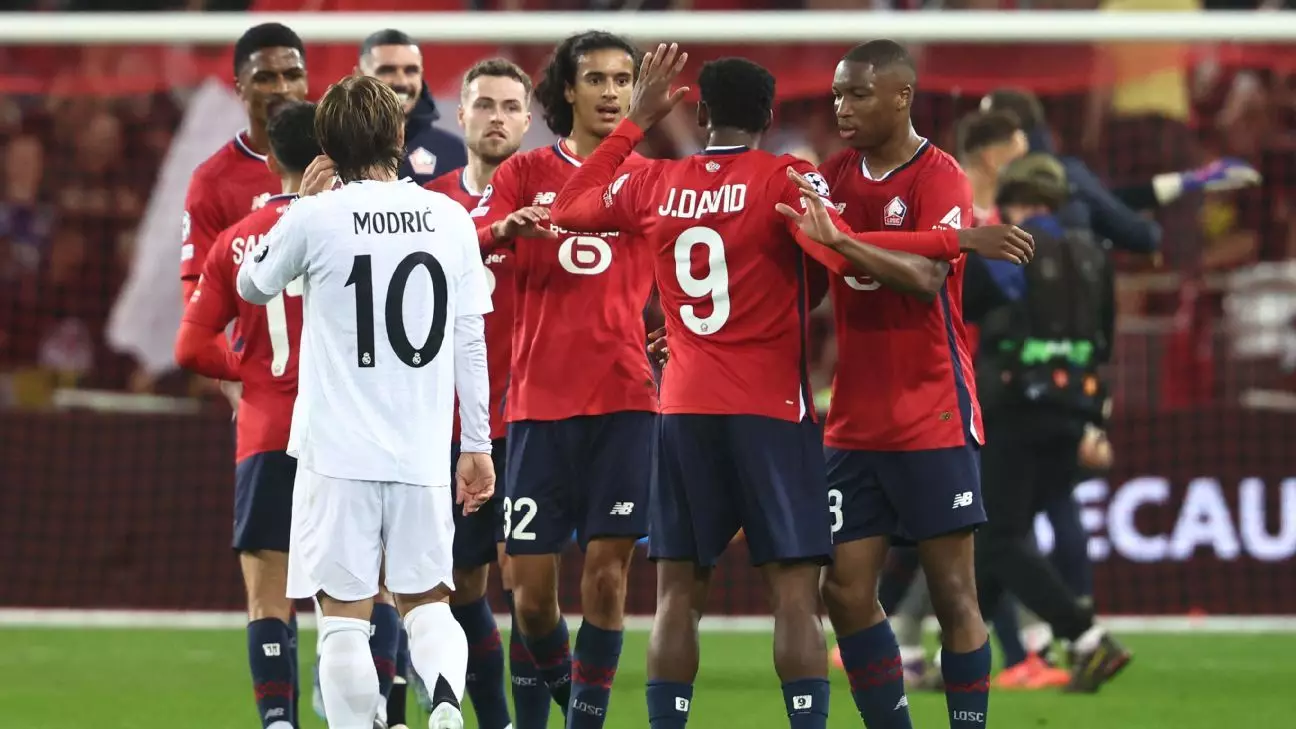Real Madrid’s recent loss to Lille in the Champions League has raised eyebrows and elicited a wave of criticism, and rightly so. Carlo Ancelotti, Madrid’s manager, acknowledged the validity of this critique, stating that the team’s performance “wasn’t good” and that they must confront their shortcomings head-on. This defeat, characterized by a solitary penalty goal from Lille’s Jonathan David just before halftime, exemplified a lack of urgency and creativity from the Spanish giants, leaving fans and analysts puzzled about the team’s direction.
Ancelotti’s call for self-reflection is crucial in a season where expectations remain high. He emphasized that the team “shouldn’t look for excuses,” urging players and staff alike to focus on tangible improvements rather than dwelling on what could have been. This approach resonates particularly in sports, where accountability can dictate the trajectory of a team’s performance. Ancelotti pointed out how Real Madrid faced challenges in terms of ball control and aggressive play, noting a general “bad” performance that left many questions unanswered.
While opportunities did present themselves during the match—most notably through the likes of Endrick and Vinícius Júnior—Madrid’s failure to convert these chances was telling. The team’s transition play fell flat and lacked the urgency needed in high-stakes matches like those in the Champions League. Goalkeeper Andriy Lunin echoed Ancelotti’s sentiments, suggesting that the team may have lacked the requisite tenacity and creativity to contend effectively. This ongoing debate about the team’s intensity is concerning, especially given the high caliber of talent at Ancelotti’s disposal.
With only three points secured from two group matches, Madrid finds itself in an uncharacteristically low position, further amplifying the need for introspection. Ancelotti’s frank acknowledgment of the squad’s current state is a refreshing reminder that even the most storied teams can falter. As he noted, “the sadness comes from the feeling of the team,” showcasing a level of emotional investment that can either galvanize or further demoralize the squad as they look to rectify their apparent flaws.
On a more positive note, the match served as a pivotal moment for young forward Endrick, who made his first Champions League start, setting a record as the youngest player to do so for Madrid. Despite the loss, Endrick expressed his thrill at playing for what he called “the biggest club in the world.” This highlights a silver lining amid the defeat—an injection of youth and potential that could reignite the team’s fortunes in the coming matches.
Real Madrid’s defeat at Lille serves as a critical juncture for the team. The acknowledgment by Ancelotti and his players of the need for improvement is the first step on a long road to recovery. With the backing of their supporters, if they can harness the energy and talent within their ranks, it is conceivable that they will bounce back stronger, with an eye on regaining their stature in European football.

